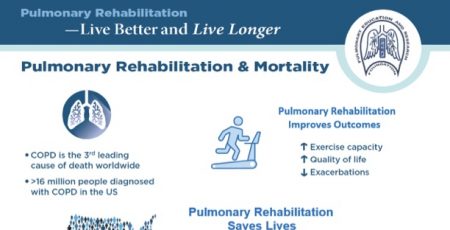28 Dec The Signs of Pneumonia and How to Avoid Getting It
Pneumonia is an infection that inflames the air sacs in the lungs and causes a cough with phlegm or pus, fever, chills, and difficulty breathing. The disease can be mild or serious; even life-threatening.
What Are the Signs of Pneumonia as Opposed to a Cold or Flu?
Mild pneumonia may cause symptoms that are much like a cold or flu, but they last longer. Other more recognizable symptoms of pneumonia include:
- Chest pain with coughing or even pain with just breathing
- Confusion, especially in adults 65 or older
- A cough that produces phlegm
- Fatigue
- Fever, sweats, and chills
- Lower than normal body temperature
- Persistent fever above 102 degrees
- Nausea, vomiting, or diarrhea
- Shortness of breath
If you’re experiencing any of these symptoms, you should see a doctor, especially if you’re over 65 or have an underlying health condition or weakened immune system.
What Causes Pneumonia?
You can develop pneumonia from a number of places and from various germs. Out in the community, you can be infected with bacteria such as Streptococcus pneumoniae, or a bacteria-like organism such as Mycoplasma pneumonia. Fungi from soil or bird droppings also can cause pneumonia to develop, especially in people with chronic health problems or weakened immune systems. Finally, viruses such as those that cause colds and flu can cause pneumonia as well.
Pneumonia contracted In hospitals or long-term health care facilities can be particularly dangerous, because the organism causing it may be resistant to antibiotics. The fact that you’re hospitalized or receiving long-term care can also raise the risk that your infection will be more serious since you’re already sick.
Pneumonia also can develop from aspiration, i.e. inhaling food, drink, vomit, or saliva into your lungs. This can happen when something disturbs your normal gag reflex, such as a brain injury, a swallowing problem, or the use of excessive amounts of alcohol or drugs.
Factors That Raise the Risk of Pneumonia
If you’re 65 or older, you’re at a higher risk of pneumonia. This is a simple fact, no matter if you’re fit and healthy.
If you also have COPD, asthma, or heart disease, your susceptibility to pneumonia is higher.
Smoking increases your risk of getting pneumonia because it damages your body’s natural defenses against bacteria and viruses.
If you have a weakened or suppressed immune system, you’re more susceptible too. This includes people who have HIV/AIDS or receive chemotherapy or long-term steroids or who’ve had an organ transplant.
Being hospitalized can raise your risk of contracting pneumonia, especially if you’re on a ventilator to help you breathe.
For information on the risk of COVID-19 associated pneumonia, read our blog post here.
It’s Not Just Pneumonia Itself That’s Dangerous; It’s the Potential Complications
Even if you receive treatment for pneumonia, you’re at risk for developing these complications, especially if you’re in a high-risk group:
- Bacteria in the bloodstream. Your blood cells can spread the infection to other organs in your body.
- Breathing problems. If you have an underlying condition such as COPD, pneumonia can make your breathing even more difficult.
- Fluid build-up in or around the lungs. If this happens and the fluid becomes infected, you may have to have the fluid drained through a chest tube or even surgery.
- Pus could form in a cavity of the lung, creating an abscess. This might be successfully treated with antibiotics, but sometimes surgery or drainage is needed to remove the pus.
How to Prevent Pneumonia
The first line of defense begins with your lifestyle habits. Get enough sleep, eat nutritious foods, and exercise regularly. Being healthy and fit makes you less susceptible to disease. Here are three more important steps to take:
- Don’t smoke.
- Wash your hands often, or use a hand sanitizer.
- Get a pneumonia vaccine. Talk with your doctor about which vaccine is best for you.
Information for this article was obtained from the Mayo Clinic.





Marianne Lucia
Posted at 10:34h, 22 OctoberI am 60 years old and I have COPD. I have been vaccinated for civil 19 and flu. I just recently developed carbon dioxide poisoning. I went to hospital and they got my level back to normal. If I get any infection the doctor says I could die. Please help me.
PERF
Posted at 20:45h, 24 MarchDear Marianne,
Please forgive this long delay in responding to your post. It was found buried in more than 400 spam posts!
I am so sorry you had such a frightening experience with what sounds like carbon dioxide retention (when the CO2 your body produces is not breathed out and accumulates in your body). I urge you to make an appointment with your pulmonologist as soon as you correct the cause of that carbon dioxide poisoning. Tell him your fears and ask for more information. It is hard to know the cause without more information about your case, but it could be that continuous positive airway pressure breathing assist device to be worn during sleeping (CPAP) might be of help to you. Another device is a called a non-invasive ventilator, that can we worn during the dat. Regardless, you should get help immediately from your pulmonologist to locating the cause of your CO2 retention and treat it appropriately.
Best wishes,
Mary Burns, RN, BS